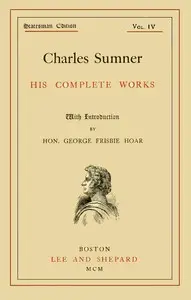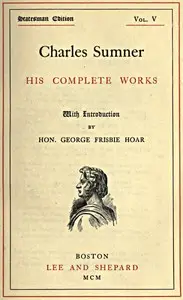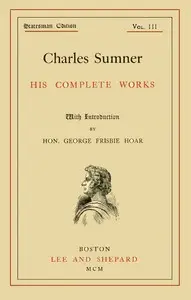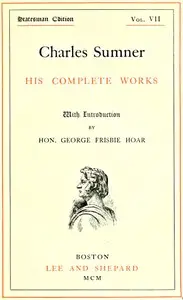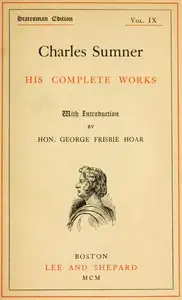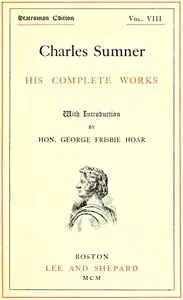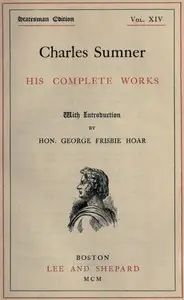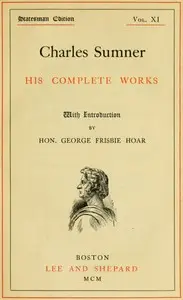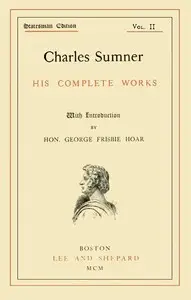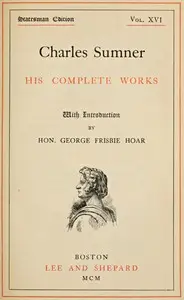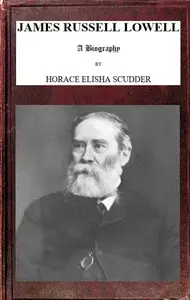"Charles Sumner: his complete works, volume 06 (of 20)" by Charles Sumner is a historical work assembling letters and speeches from a key abolitionist and senator before the Civil War. The book showcases Sumner's political actions through letters to committees and people where he champions the Republican cause, Kansas' fight for freedom, and blocks slavery's spread. The early letters show Sumner's dedication to ending slavery with the Republican party and his desire to get back to work in the Senate. Charles Sumner emphasizes working together to fight for freedom and his push for young Massachusetts citizens to unify around the anti-slavery movement.
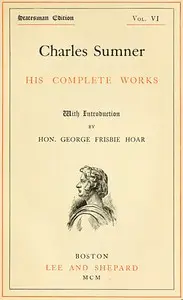
Charles Sumner: his complete works, volume 06 (of 20)
By Charles Sumner
Experience the political battles before the Civil War through the passionate words and letters of a senator fighting to end slavery and unite a nation.
Summary
About the AuthorCharles Sumner was an American lawyer, politician, and statesman who represented Massachusetts in the United States Senate from 1851 until his death in 1874. Before and during the American Civil War, he was a leading American advocate for the abolition of slavery. He chaired the Senate Foreign Relations Committee from 1861 to 1871, until he lost the position following a dispute with President Ulysses S. Grant over the attempted annexation of Santo Domingo. After breaking with Grant, he joined the Liberal Republican Party, spending his final two years in the Senate alienated from his party. Sumner had a controversial and divisive legacy for many years after his death, but in recent decades, his historical reputation has improved in recognition of his early support for racial equality.
Charles Sumner was an American lawyer, politician, and statesman who represented Massachusetts in the United States Senate from 1851 until his death in 1874. Before and during the American Civil War, he was a leading American advocate for the abolition of slavery. He chaired the Senate Foreign Relations Committee from 1861 to 1871, until he lost the position following a dispute with President Ulysses S. Grant over the attempted annexation of Santo Domingo. After breaking with Grant, he joined the Liberal Republican Party, spending his final two years in the Senate alienated from his party. Sumner had a controversial and divisive legacy for many years after his death, but in recent decades, his historical reputation has improved in recognition of his early support for racial equality.

